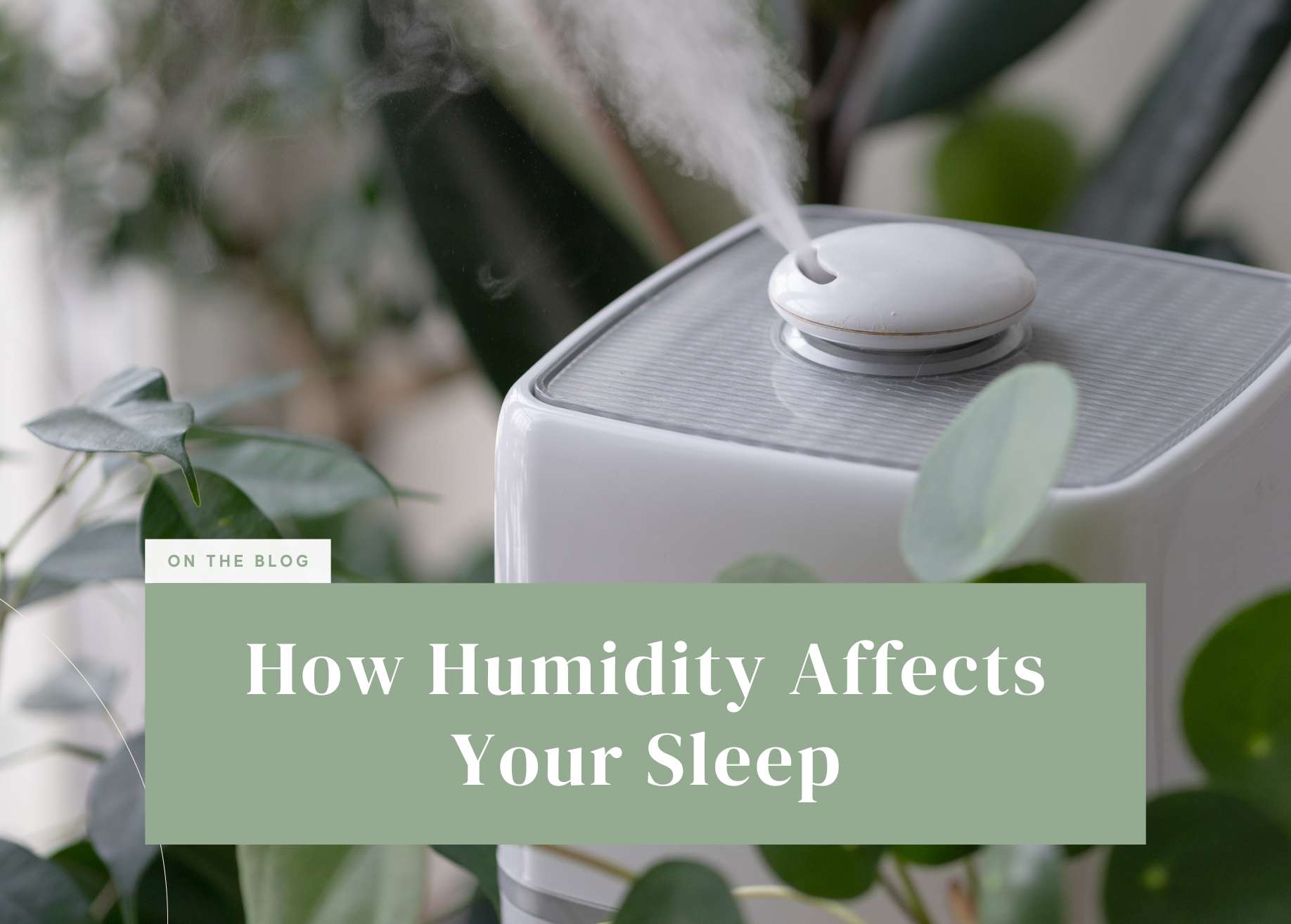How Humidity Affects Your Sleep
You can’t see it. You can’t always feel it.
But if you’ve ever woken up sweaty, stuffy, or with a dry throat, humidity might be the reason.
It’s one of those invisible factors that quietly makes or breaks your rest—and most people never think about it.
So how exactly does humidity affect your sleep, and what can you do about it?

The Science of Air and Comfort
Humidity is simply the amount of moisture in the air.
The ideal range for sleep sits between 40% and 60%—not too dry, not too damp.
But when it drifts too far in either direction, your body feels the difference.

When Humidity Is Too High
Air that’s heavy with moisture traps heat. Your body can’t cool itself efficiently, so your core temperature rises.
That leads to:
-
Restlessness and sweating
-
Sticky skin and overheating
-
Shorter deep-sleep cycles

It also creates a breeding ground for dust mites and allergens, both of which can trigger congestion and snoring.
When Humidity Is Too Low
Dry air does the opposite—it pulls moisture from your body.
You might wake up with:
-
A sore throat or dry nasal passages
-
Chapped lips and itchy skin
-
More snoring or even nosebleeds

And because dry air can irritate the airways, it’s especially tough on people with allergies or colds.
Finding the Right Balance
The key isn’t chasing perfection—it’s creating a steady environment.
-
Use a humidifier in winter when heaters dry the air.
-
Try a dehumidifier or air conditioner in muggy climates.
-
Keep the bedroom around 65°F (18°C) for optimal comfort.

The Comfort Layer That Helps Most
Even with balanced air, the materials closest to your body matter most.

🌿 Honey Hybrid Organic Mattress: Breathable latex and cotton layers let air flow naturally, preventing trapped heat or humidity buildup.
🌿 Bamboo Sheets: Naturally moisture-wicking and antibacterial, they keep you cool and dry when humidity spikes.
🌿 Adjustable Base: Elevate your head slightly to reduce congestion from dry air or allergies—especially useful during seasonal transitions.
Together, they create a microclimate that keeps your body balanced, even when the air around you isn’t.
Final Thoughts
Humidity isn’t just a weather report—it’s part of your sleep environment.
Get it wrong, and you’ll wake up sticky or parched. Get it right, and your body finally stays in that steady, deep rhythm it needs.
Because the best sleep doesn’t just depend on what’s under you—it depends on the air around you, too.




